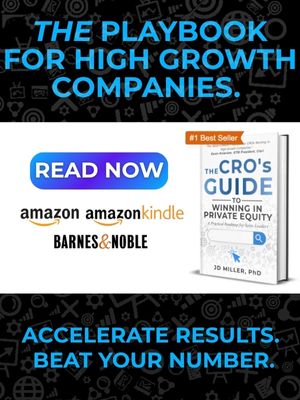
There is no Benefit to Ramen Noodles

The Equity Compensation Trap: Why Startup Fantasy Rarely Becomes Reality
The entrepreneurial world often romanticizes the journey of founders who endure financial hardships, subsisting on minimal resources with the hope that their equity stakes will eventually lead to substantial wealth. However, research indicates that this narrative is more myth than reality.
The Reality of Startup Equity
While equity compensation is a common strategy for startups to attract talent without immediate cash outflow, its effectiveness is questionable. A study published in The Journal of Law, Economics, and Organization highlights that employees often harbor “market illusions” regarding the value of startup equity, leading to inefficiencies in the labor market.
Moreover, data from Carta’s H2 2023 report reveals a significant decline in the average equity grants for new hires, with a 36.9% reduction since November 2022. This trend suggests that the anticipated value of equity compensation is diminishing over time. [1]
Financial Implications for Startup Employees
The assumption that accepting lower salaries in exchange for equity will result in greater long-term rewards is often flawed. Research indicates that startup employees frequently face earnings penalties compared to their counterparts in established firms. This disparity is largely due to the high failure rates of startups, leading to job instability and prolonged periods of unemployment.
“Despite the growing interest in entrepreneurship as an engine for job creation, little research has considered the long-term consequences of startup employment. [2]
The Founder’s Dilemma: Control vs. Wealth
Noam Wasserman, in his seminal work “The Founder’s Dilemmas,” discusses the inherent tension between maintaining control and achieving financial success. He notes that
“startup founders who give up more equity to attract cofounders, key executives, and investors build more valuable companies than those who part with less equity.”
However, this often comes at the cost of the founder’s control over the company.[3]
Evolving Trends in Compensation
The landscape of compensation in the tech industry is shifting. Historically, companies have relied heavily on stock-based compensation to attract and retain talent. However, as highlighted by Reuters Breakingviews, there is a growing trend towards cash-based salaries, driven by factors such as market volatility and investor scrutiny over share dilution.
Conclusion
While the allure of equity compensation in startups is strong, it’s essential to approach it with a critical eye. The romanticized narrative of sacrificing immediate financial stability for potential future gains often doesn’t align with reality. Both founders and employees should carefully evaluate the tangible benefits of equity stakes and consider more balanced compensation structures that provide financial security alongside potential upside.
1. The Myth of the Hustle Culture
Entrepreneurial culture glorifies struggle—the idea that eating ramen noodles, sacrificing salary for equity, and grinding for years will inevitably lead to a massive payday. We hear stories of those who “made it” and now invest in companies, speak at conferences, and enjoy financial freedom.
The reality? Most people who follow this path end up with nothing.
2. The Fantasy of Failure and Redemption
Many founders and early employees believe in the “fail until you succeed” narrative. They convince themselves that multiple failures are just stepping stones to ultimate success. But failure isn’t a business strategy, and suffering doesn’t guarantee success.
There’s no magical redemption arc for sacrificing financial stability. Many who take this risk never see a return—they just end up exhausted, underpaid, and holding equity in a company that never takes off.
3. The Harsh Reality of Startup Equity
Equity compensation sounds enticing—own a piece of something big, trade short-term salary for long-term wealth. But most startup equity:
- Never vests due to layoffs or quitting before the vesting schedule.
- Expires before it becomes liquid (if you don’t exercise it in time).
- Gets diluted, reducing its value.
- Is tied to a company that never exits, making it worthless.
Even if the company IPOs, it doesn’t mean your shares are worth anything—many companies go public but fail to deliver real value to shareholders.
4. The Equity Trade-Off: The Math Never Works
Here’s why equity over salary is usually a bad deal:
- You take 30-50% less salary in exchange for stock.
- After 3-5 years, you’ve given up hundreds of thousands in earnings.
- For your equity to be worth more than lost salary, the company’s valuation must grow exponentially.
- If the company’s value grows too slowly (or not at all), you’ve lost both salary and equity value.
Most founders and early employees never break even.
5. The Four Hidden Costs of Equity-First Thinking
- Equity Risk Premium Lag – The delay between lost salary and any possible financial reward.
- Sweat Equity Overhang – The widening gap between what you should have earned and what you’re actually making.
- Deferred Compensation Breakpoint – The moment when equity’s value surpasses the lost salary (which rarely happens).
- Equity Illiquidity Drag – The financial strain of holding non-cash assets while still needing income.
6. The Exponential Growth Requirement
- Let’s say your salary is $200K per year, but you take $100K + equity instead.
- After three years, you’ve lost $300K in real earnings.
- For this to pay off, your equity must be worth multiple millions—a level of growth that only happens in a fraction of startups.
- 7. When Taking Equity Over Salary Makes Sense
There are very few situations where this trade-off is smart:
✔ The startup is in a high-growth sector (AI, SaaS, fintech, biotech).
✔ There’s a clear liquidity event (IPO, acquisition) in 5-7 years.
✔ The equity’s growth potential exceeds lost salary + opportunity cost.
8. When It’s a Losing Strategy
🚨 The company never exits or grows too slowly.
🚨 You need income stability to sustain yourself.
🚨 Equity dilution reduces your stake over time.
If your personal finances depend on the company’s success, the risk is too high.
9. The Smarter Path to Success
Instead of sacrificing salary for a hypothetical win, build a business with real revenue, strong IP, and a sustainable model. Startups don’t succeed because founders endure suffering—they win because they create value that customers will pay for.
Bottom line?
Get paid what you’re worth while ensuring that the company has a real growth path. Equity is great—but it’s not a substitute for financial security.
- Sorenson, O., Assenova, V., Li, G. C., Boada, J., & Fleming, L. (2019). Employment growth and earnings for startup employees over the long term. UCLA Anderson Review. Retrieved from https://anderson-review.ucla.edu/wp-content/uploads/2021/03/Sorenson-et-al_StartupEmployees_Final_preprint2019.pdf
- Sorenson, O., Assenova, V., Li, G. C., Boada, J., & Fleming, L. (2019). Employment growth and earnings for startup employees over the long term. UCLA Anderson Review. Retrieved from https://anderson-review.ucla.edu/wp-content/uploads/2021/03/Sorenson-et-al_StartupEmployees_Final_preprint2019.pdf
- ¹ Peter Walker, State of Startup Compensation, H1 2023, Carta, last modified September 19, 2023, https://carta.com/data/startup-compensation-h1-2023/.

































